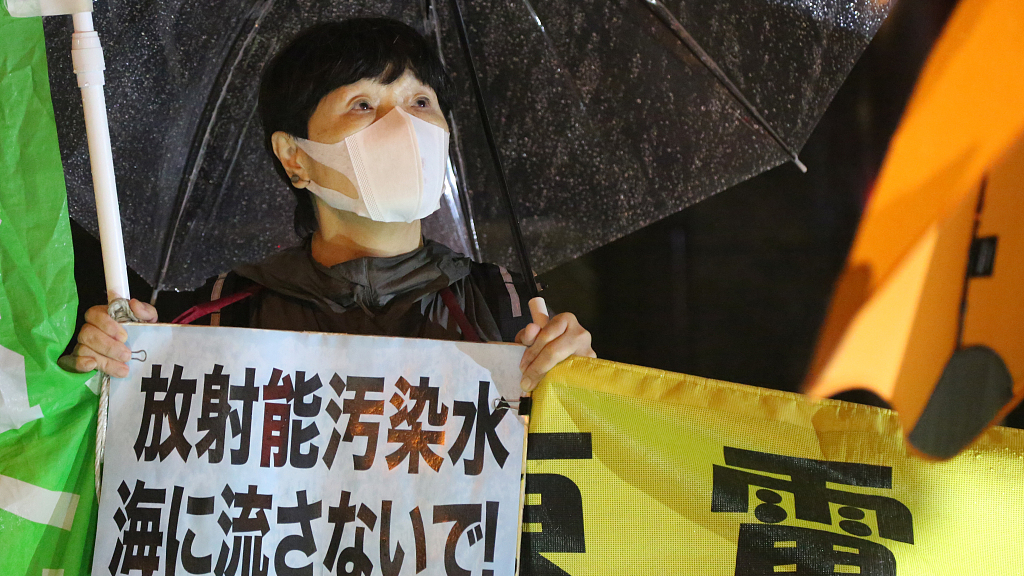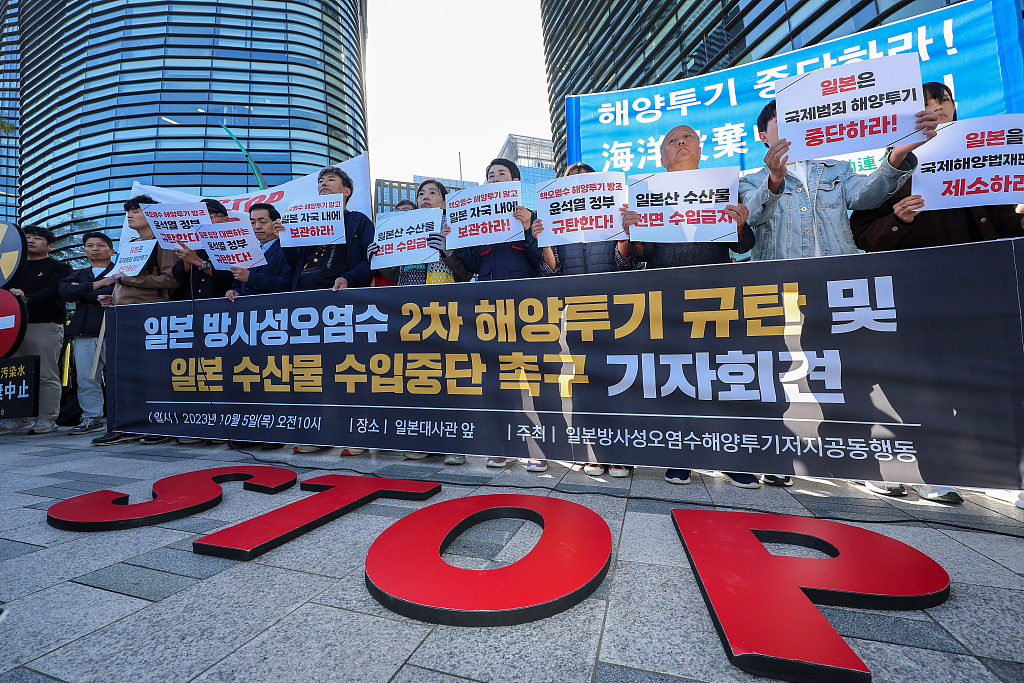Japan's wrecked Fukushima Daiichi Nuclear Power Plant said it began releasing a second batch of nuclear-contaminated wastewater into the sea on Thursday after the first round of discharges ended in September, amid protests from local fishermen and other countries.
Plant operator Tokyo Electric Power Company Holdings (TEPCO) said workers activated a pump to dilute the treated water with large amounts of seawater, slowly sending the mixture into the ocean through an underground tunnel.
The plant's first wastewater release began August 24 and ended September 11. During that release, TEPCO said it discharged 7,800 tonnes of wastewater from 10 tanks. The total estimated emissions for the second release are expected to be around 7,800 tonnes, with a discharge period of approximately 17 days.

Japanese people held a rally near the headquarters of TEPCO in Chiyoda, Tokyo, to strongly oppose the discharge of Fukushima nuclear-contaminated wastewater into the sea, October 4, 2023. /CFP
Japanese people held a rally near the headquarters of TEPCO in Chiyoda, Tokyo, to strongly oppose the discharge of Fukushima nuclear-contaminated wastewater into the sea, October 4, 2023. /CFP
The wastewater discharges, which are expected to continue for decades, have been strongly opposed by local fishing groups and neighboring countries, including South Korea, China and Russia.
A group of 150 people in Japan, including fishery workers in Fukushima Prefecture, filed a lawsuit against the Japanese government and TEPCO last month to call a halt to the controversial ocean discharge.
Many South Korean activists on Thursday condemned Japan's dumping of nuclear-contaminated wastewater from the crippled Fukushima Daiichi nuclear power plant into the Pacific Ocean. The activists held a press conference near the Japanese Embassy in Seoul, urging the Japanese government to immediately stop the "nuclear terrorism crimes against humanity."

People held a rally in front of the Japanese embassy in Seoul, South Korea, October 5, 2023. /CFP
People held a rally in front of the Japanese embassy in Seoul, South Korea, October 5, 2023. /CFP
On Wednesday, Russian Foreign Ministry spokesperson Maria Zakharova criticized Japan over a lack of transparency and a failure to provide full access to information regarding the water release. Earlier, the Federal Service for Veterinary and Phytosanitary Surveillance of the Russian Federation had mentioned considering a ban on seafood imports from Japan, following China's decision.
At the General Conference of the International Atomic Energy Agency (IAEA) held in late September, Vice Chairman of the China Atomic Energy Authority Liu Jing said the discharge of the Fukushima wastewater is a major nuclear safety issue, as it is an unprecedented artificial release of contaminated water from nuclear accidents into the sea.
(With input from AP and Xinhua)